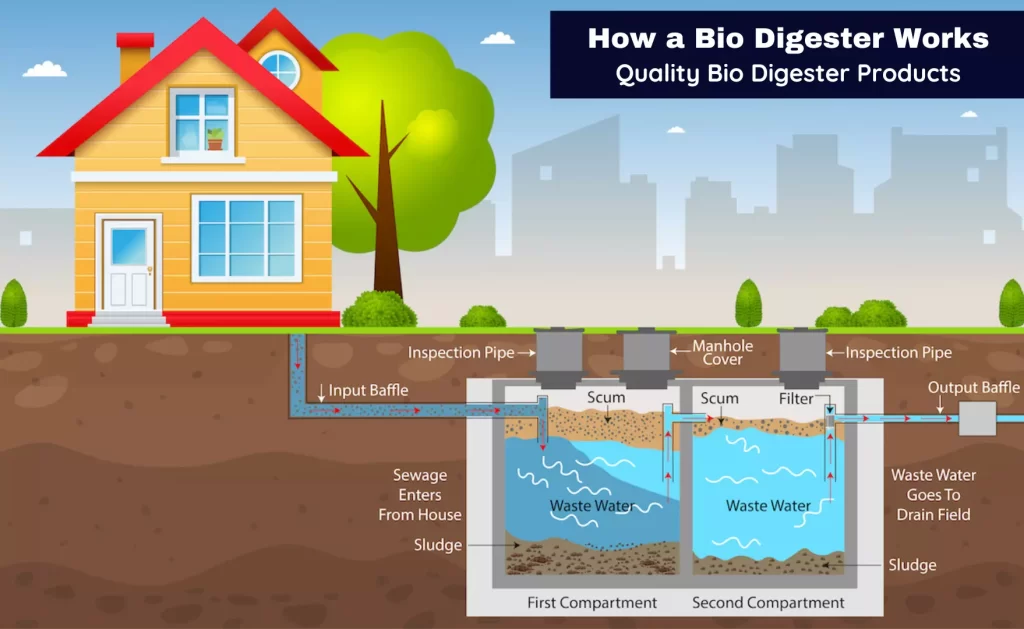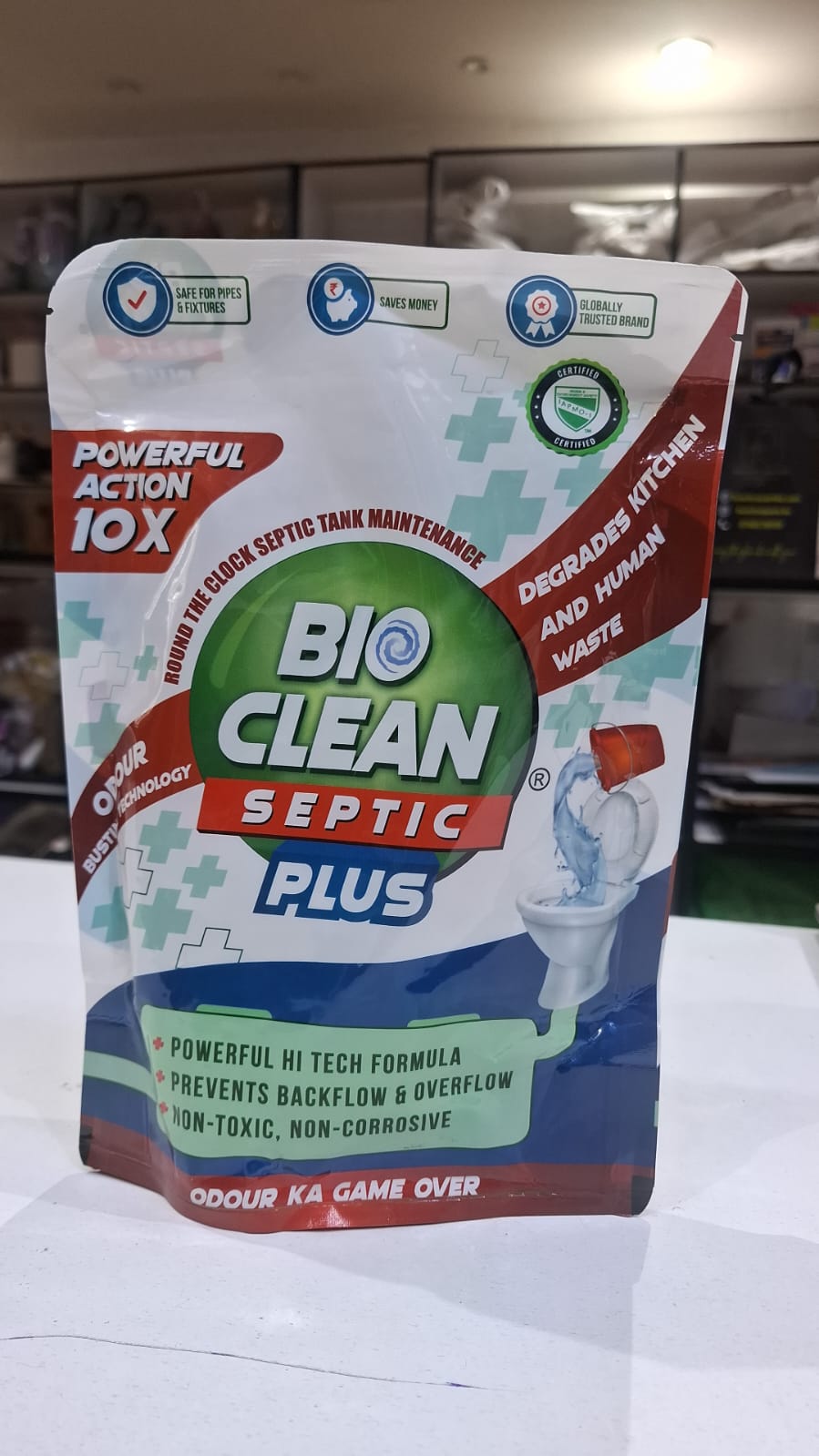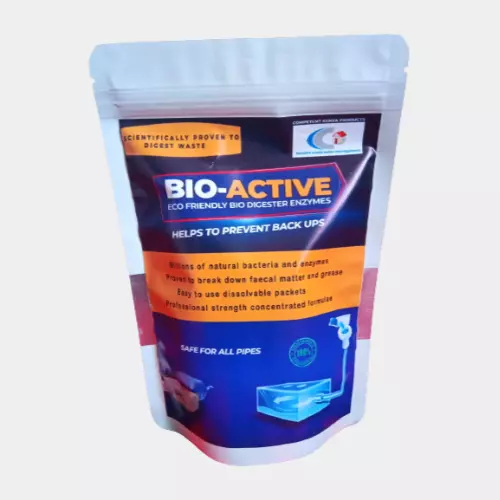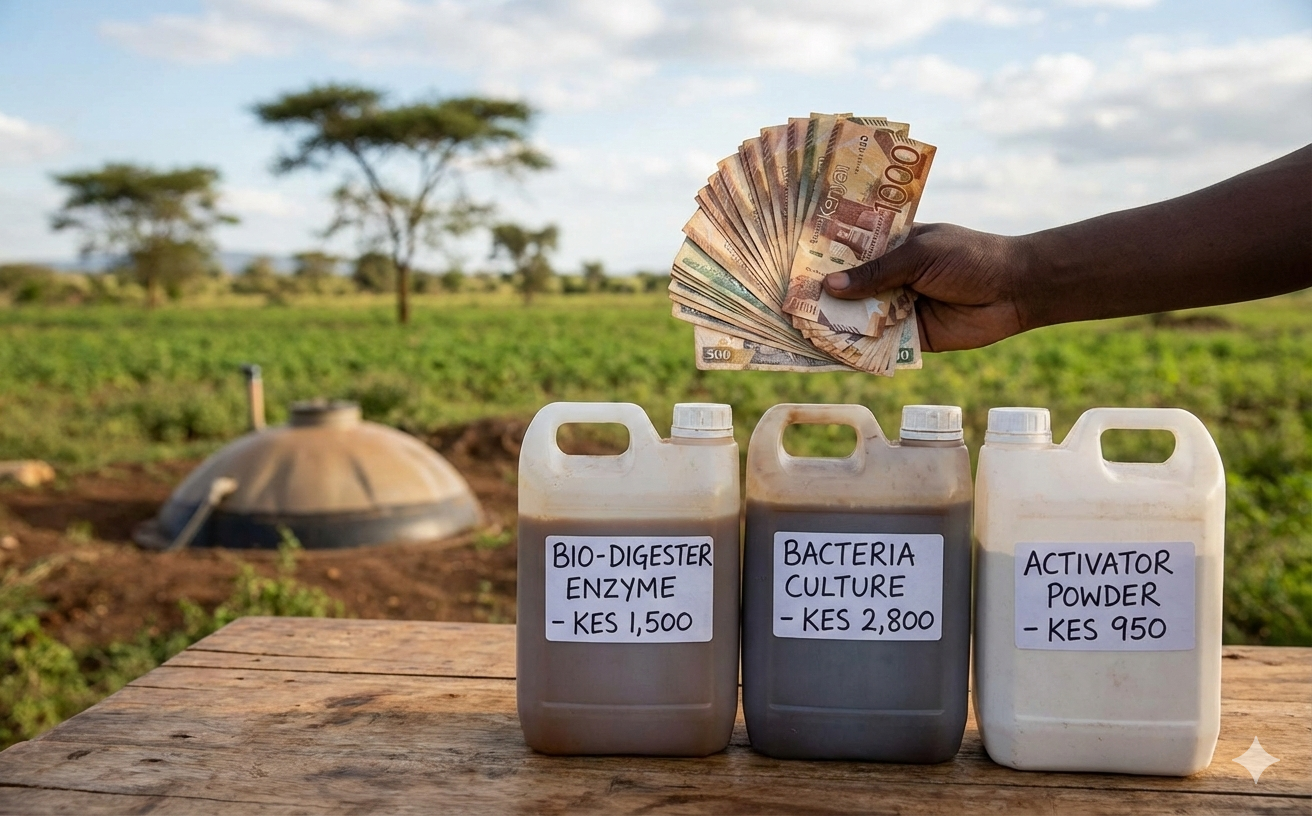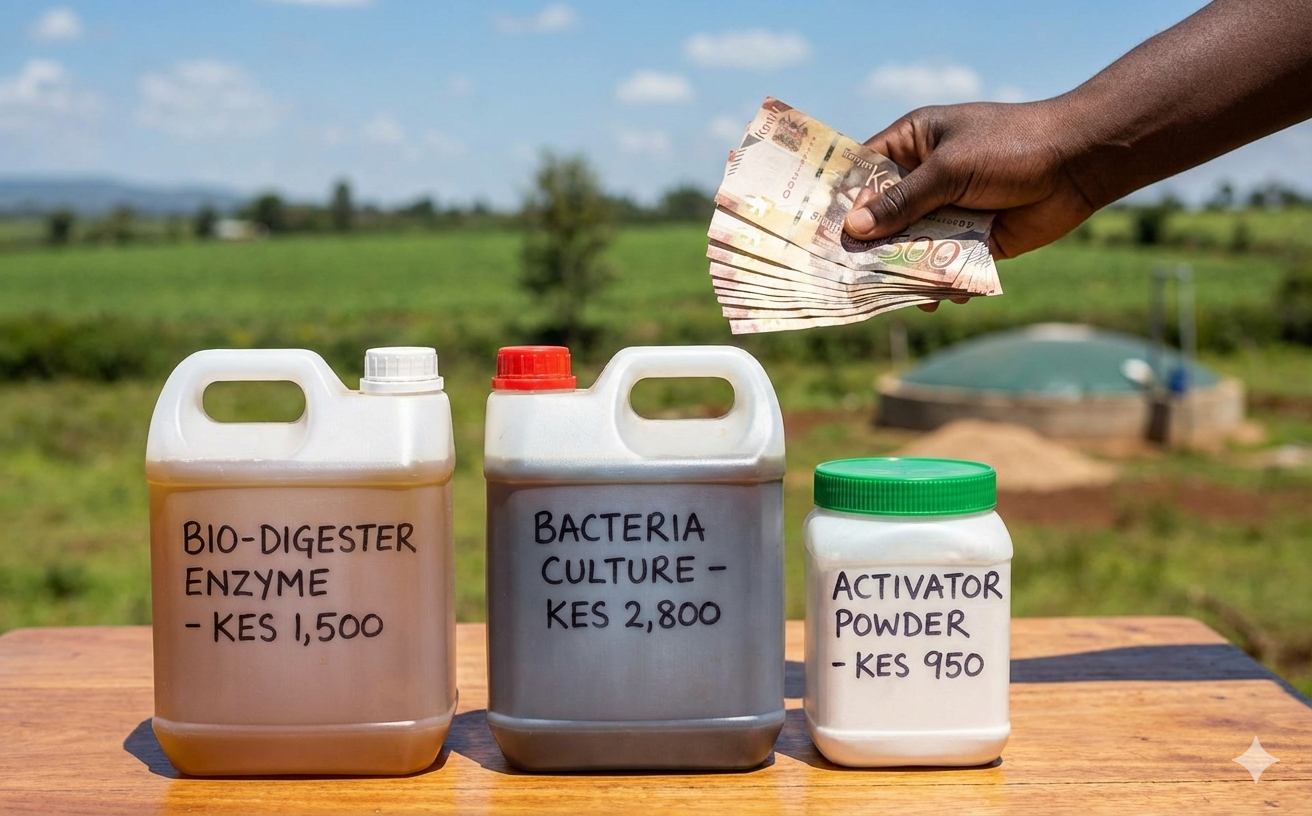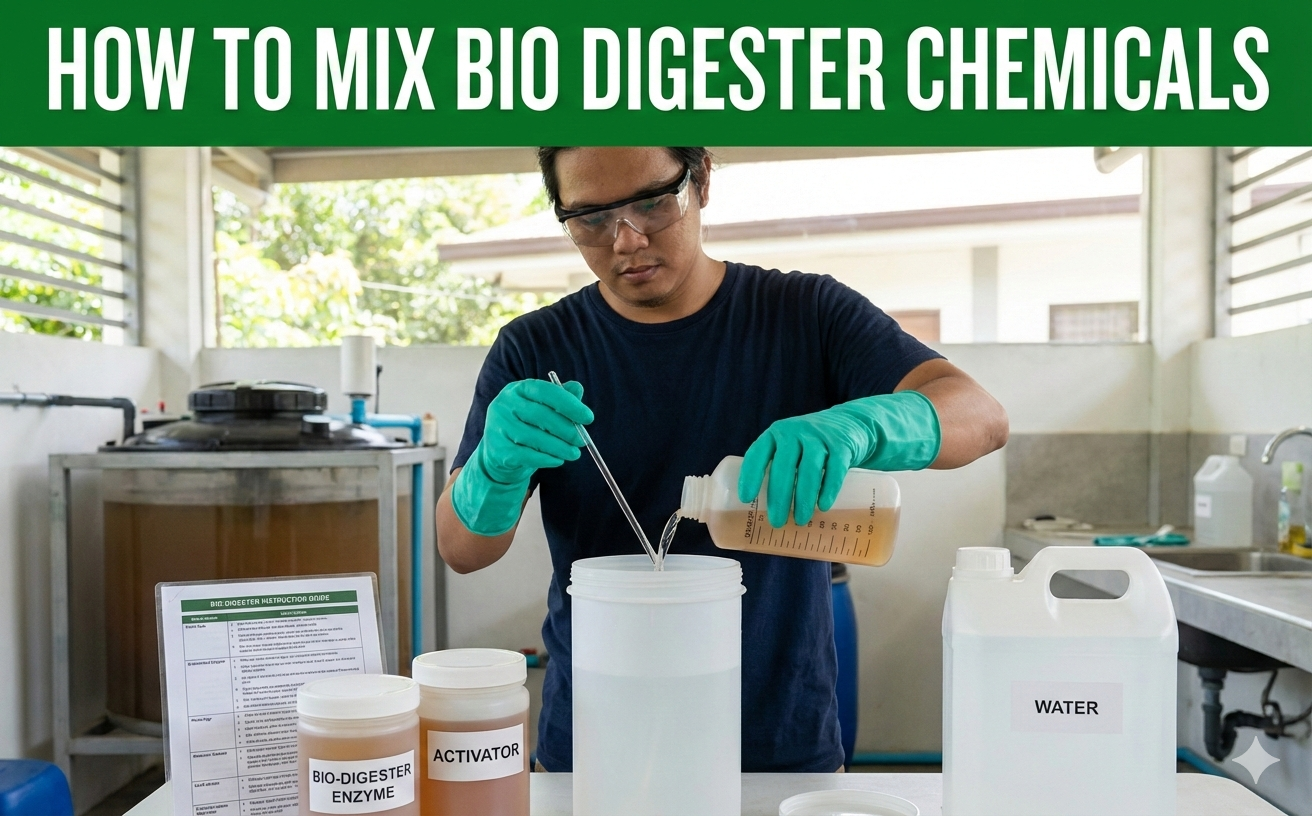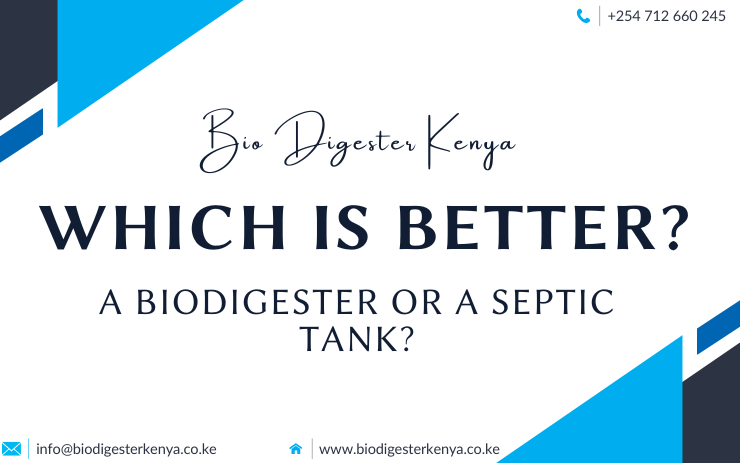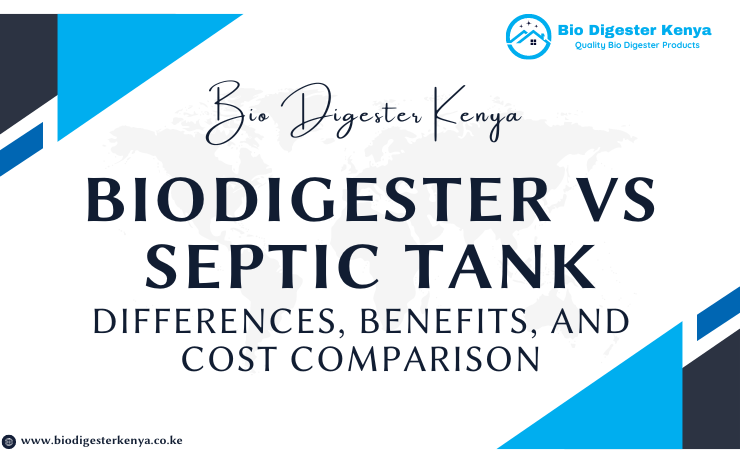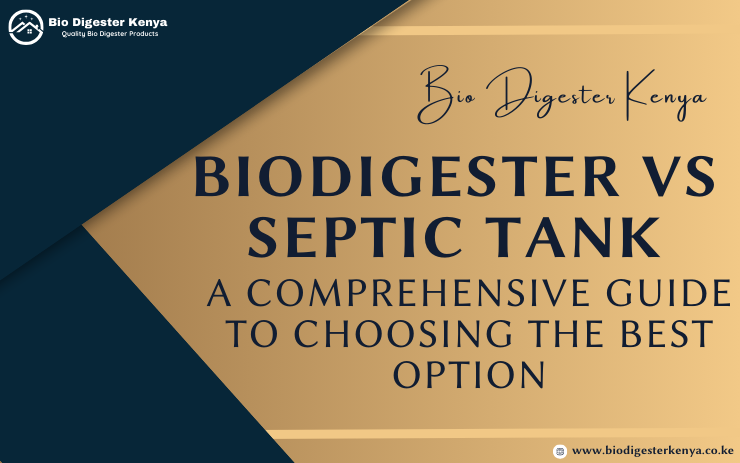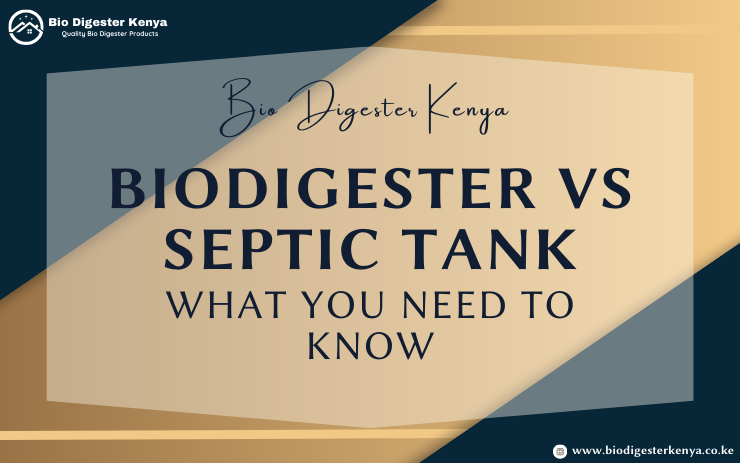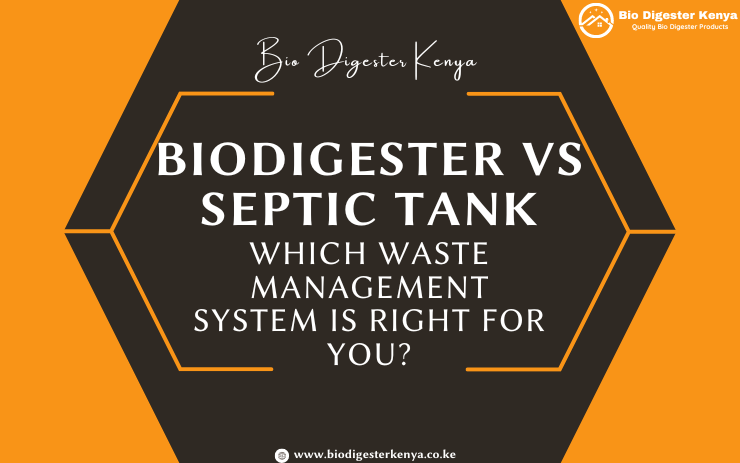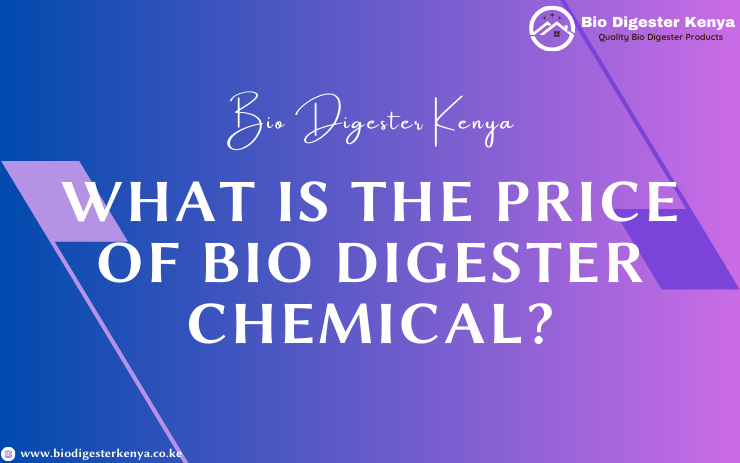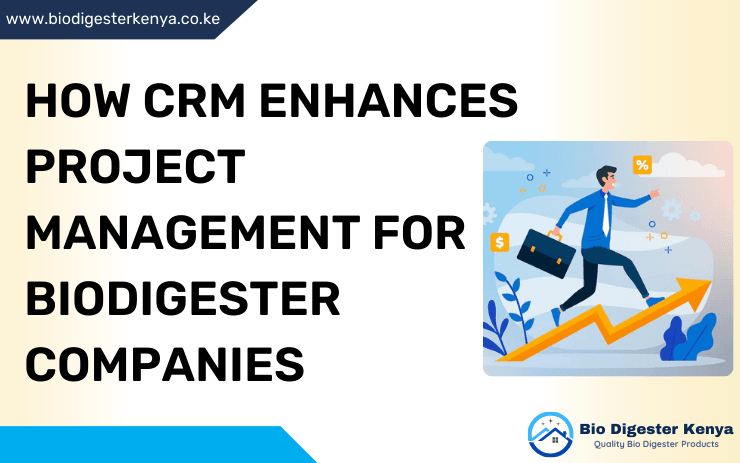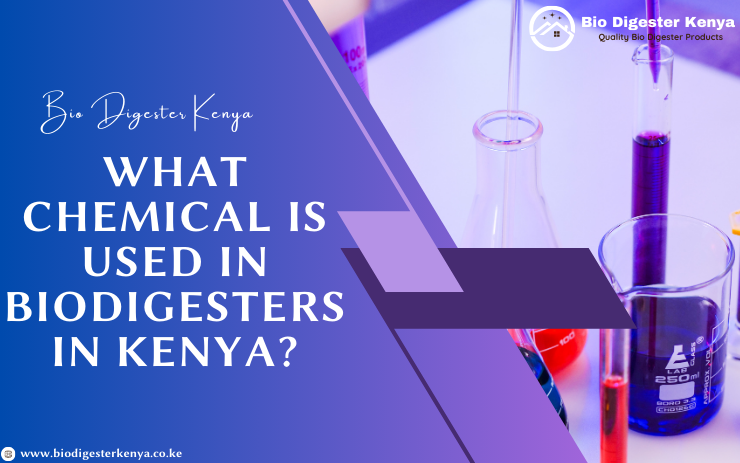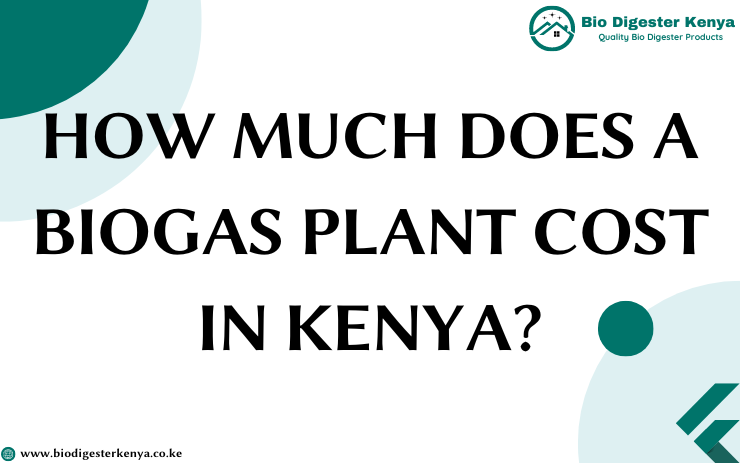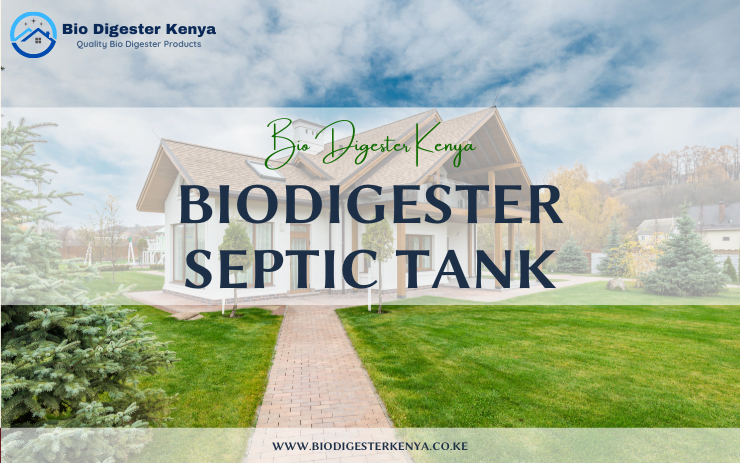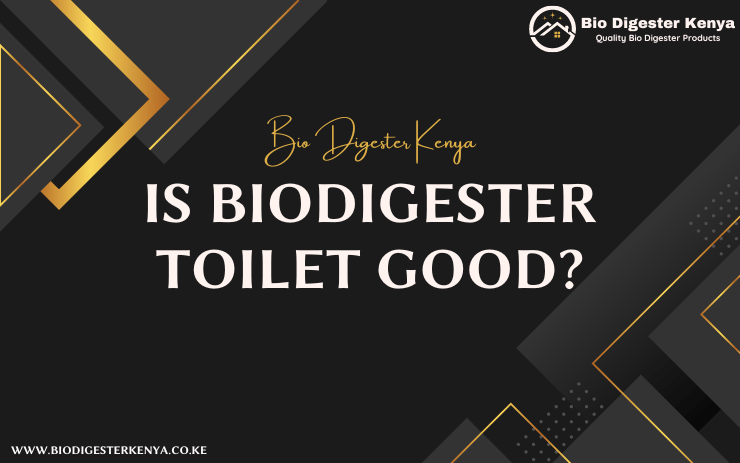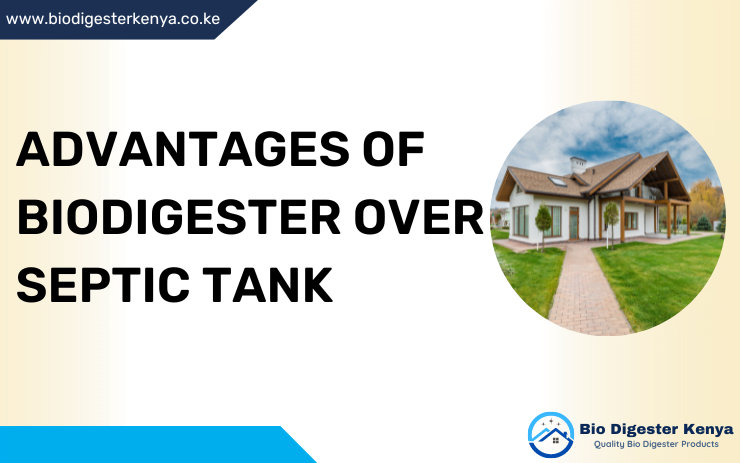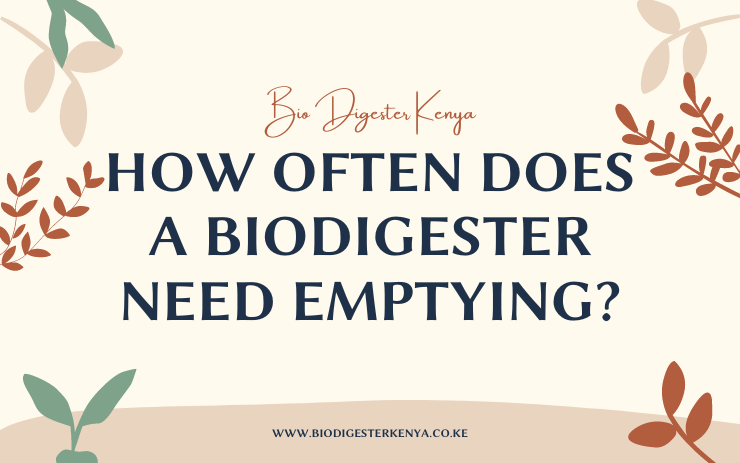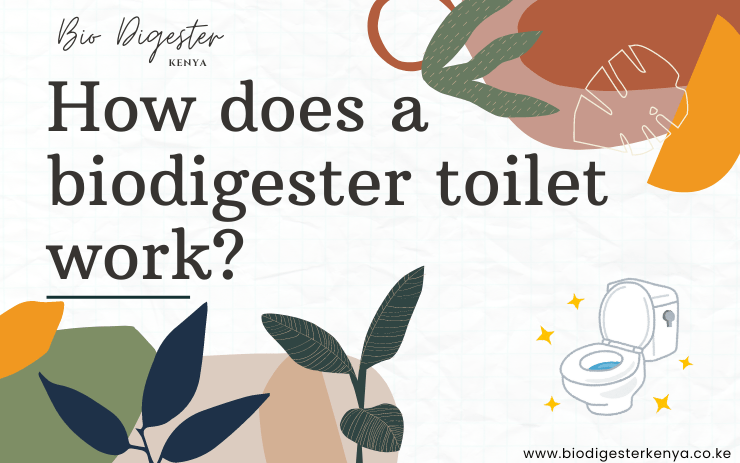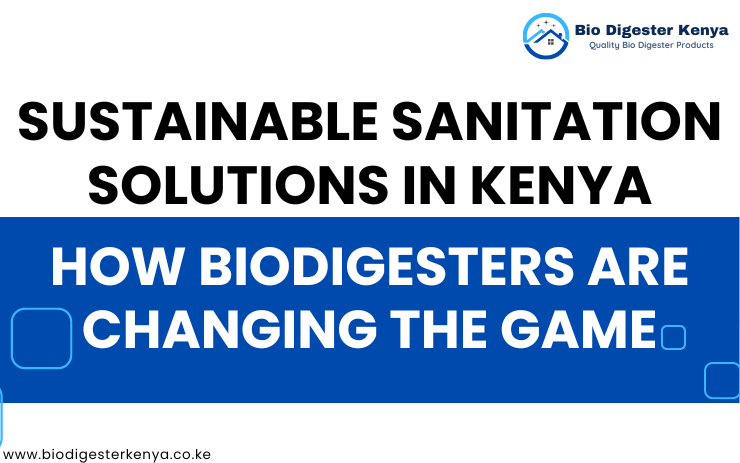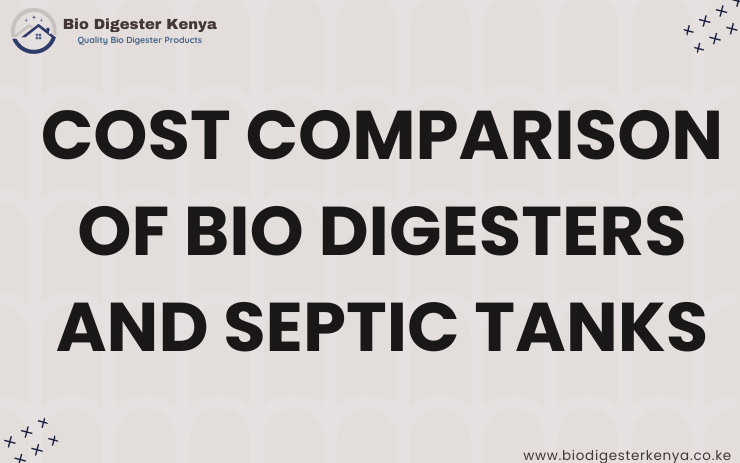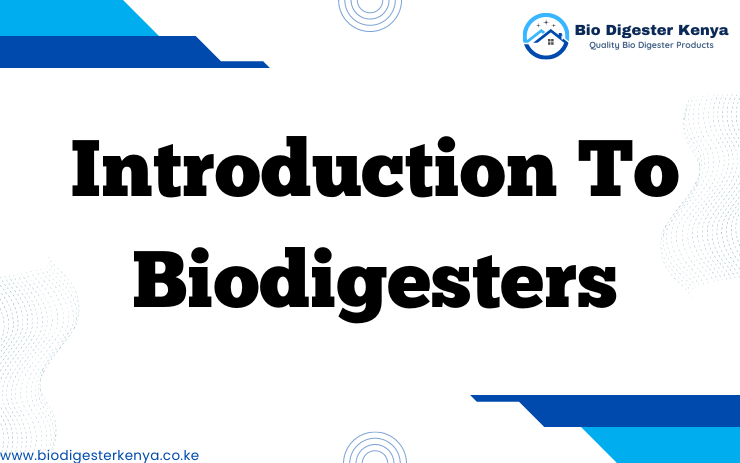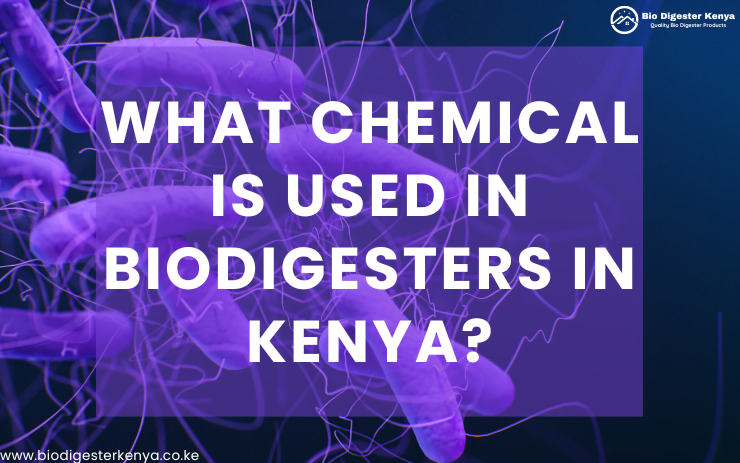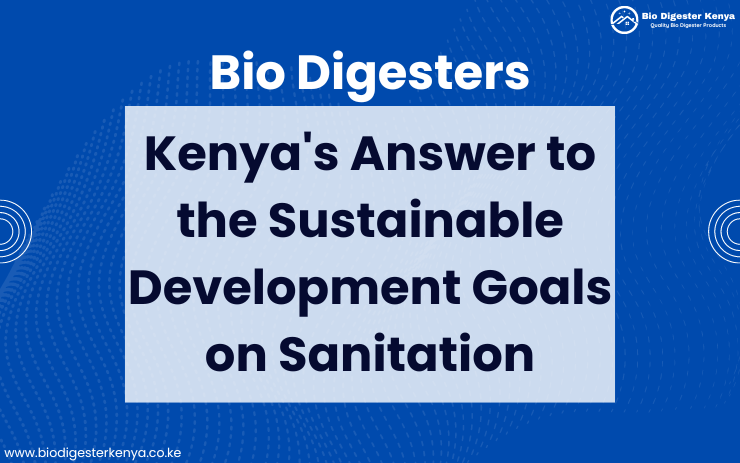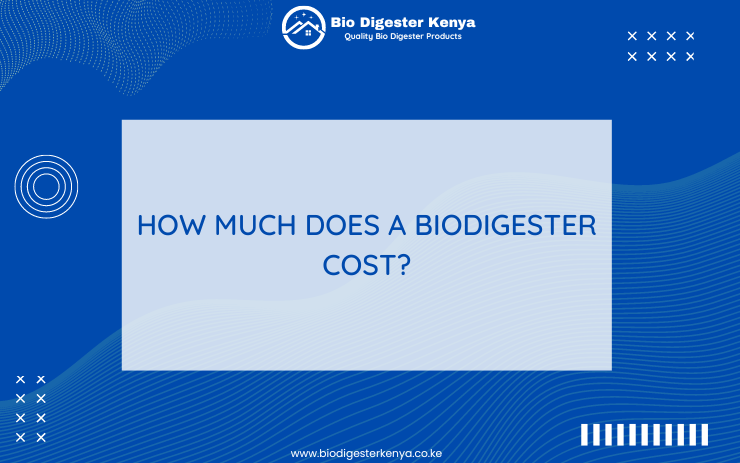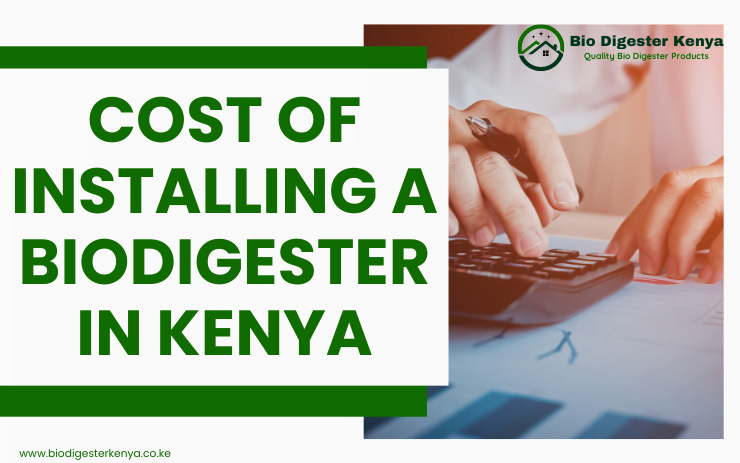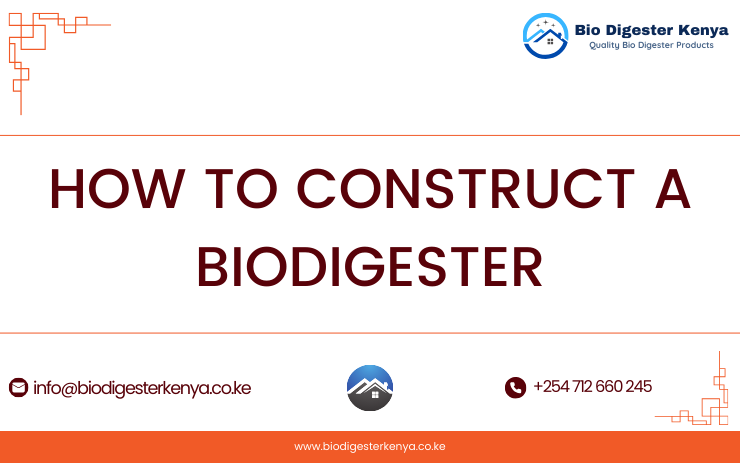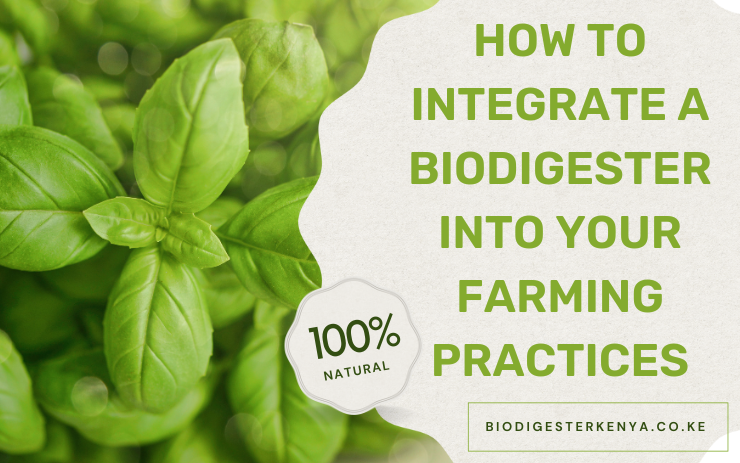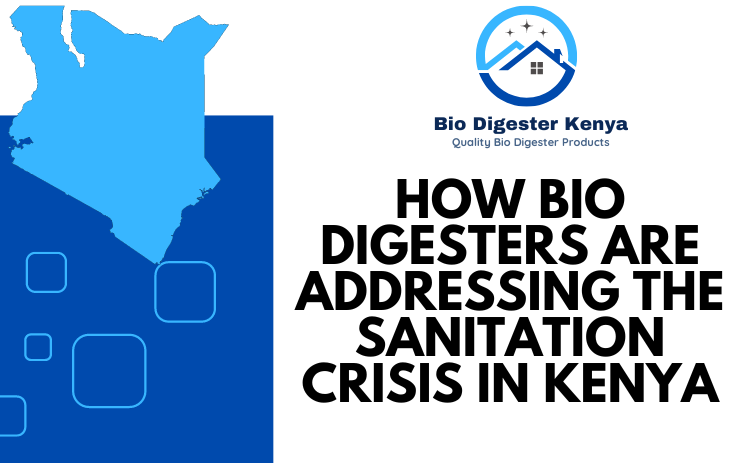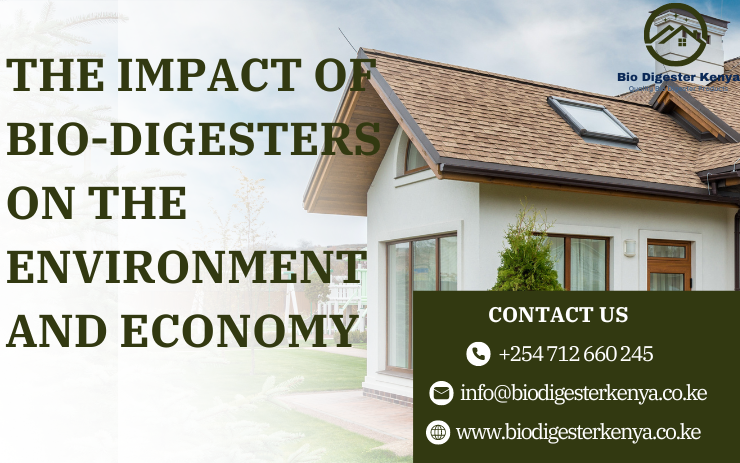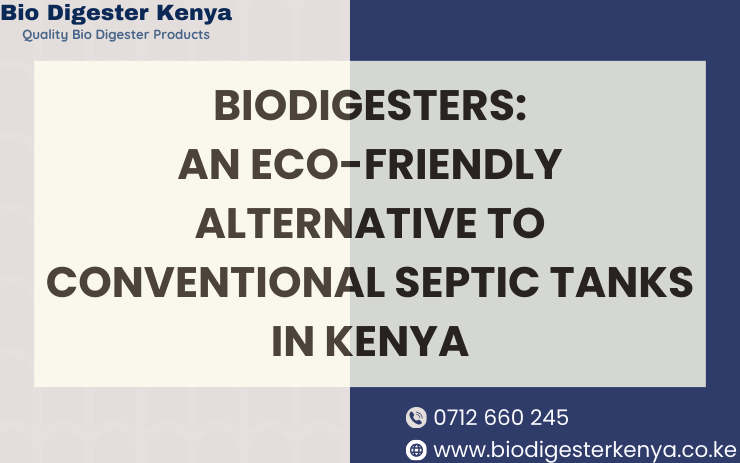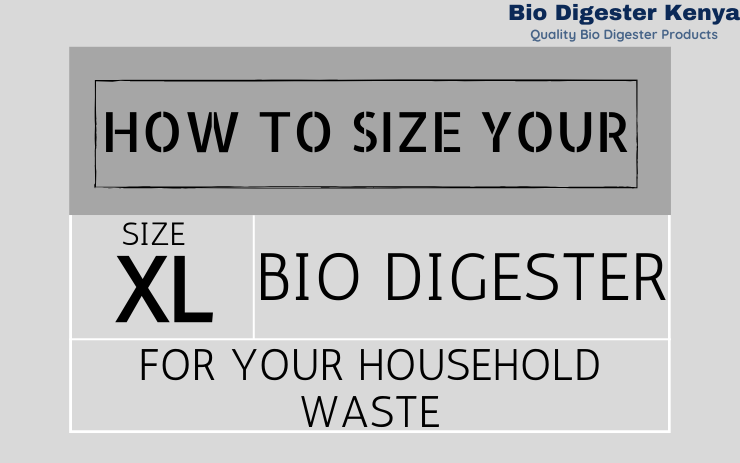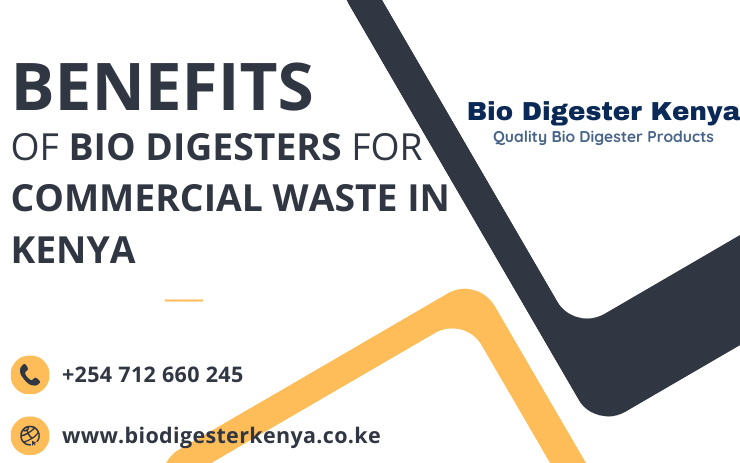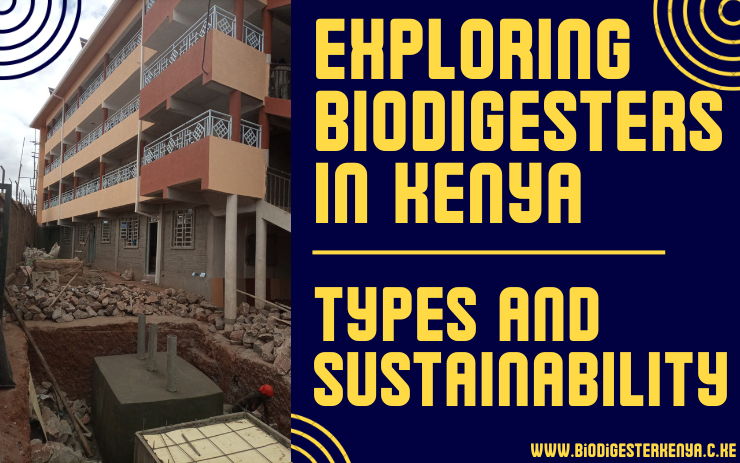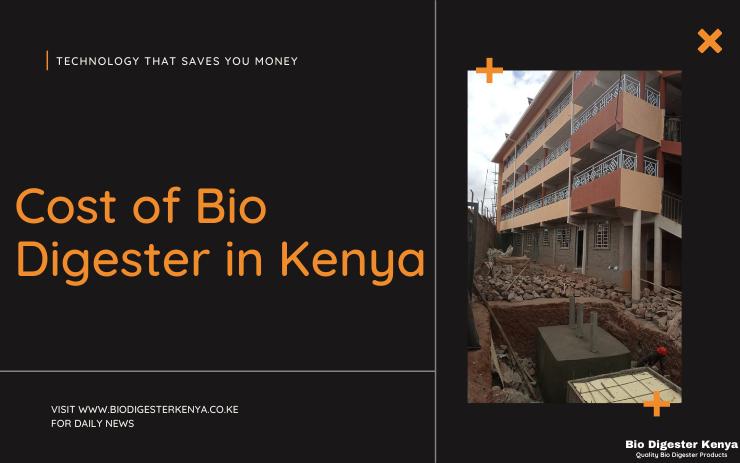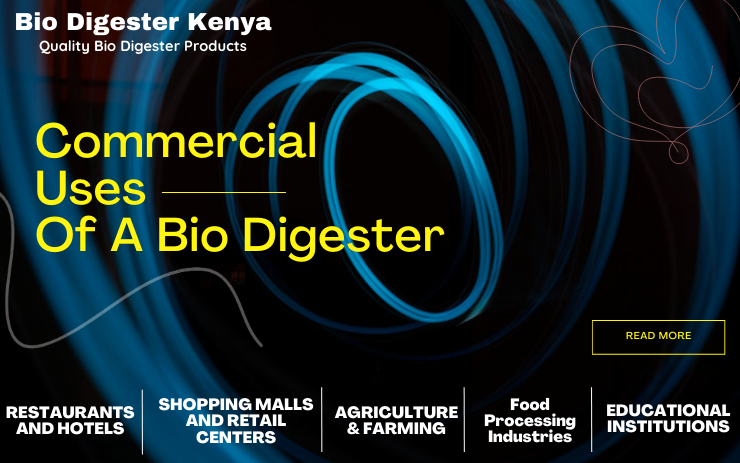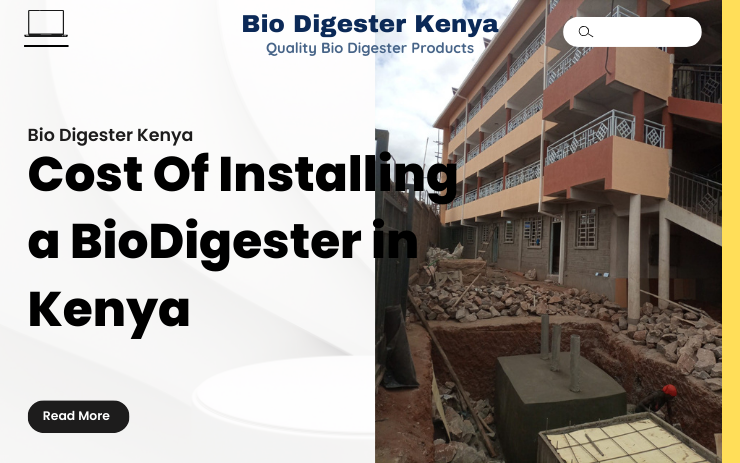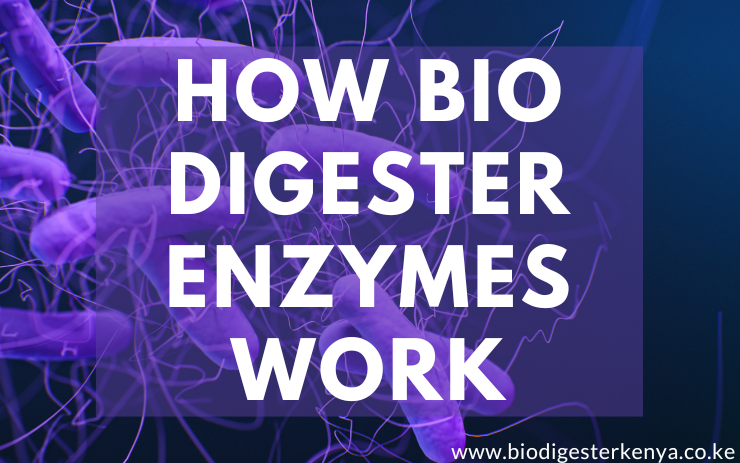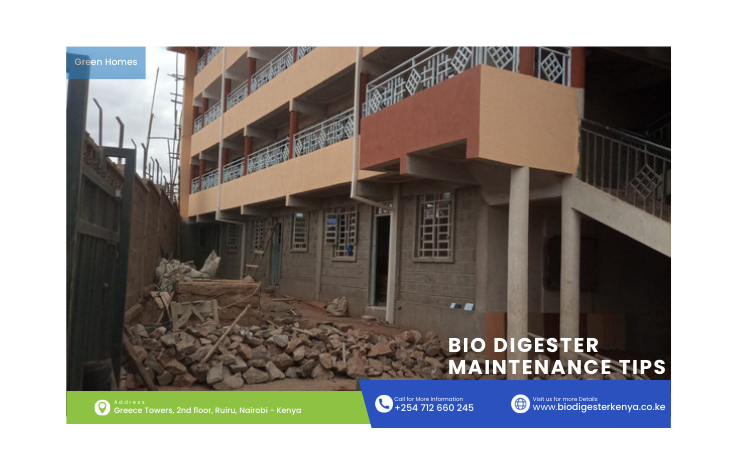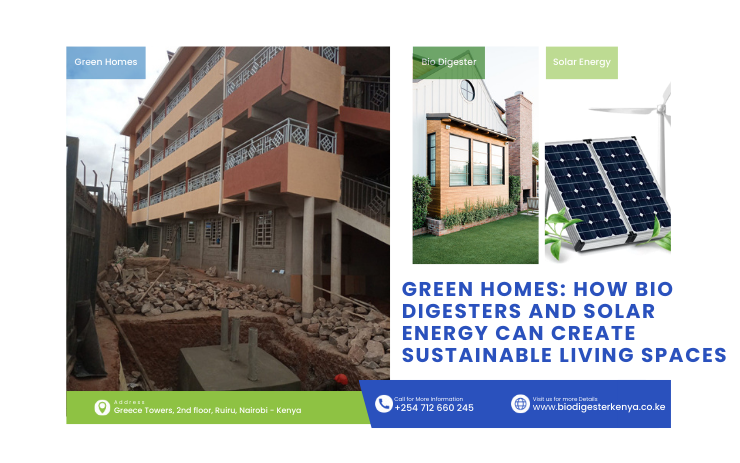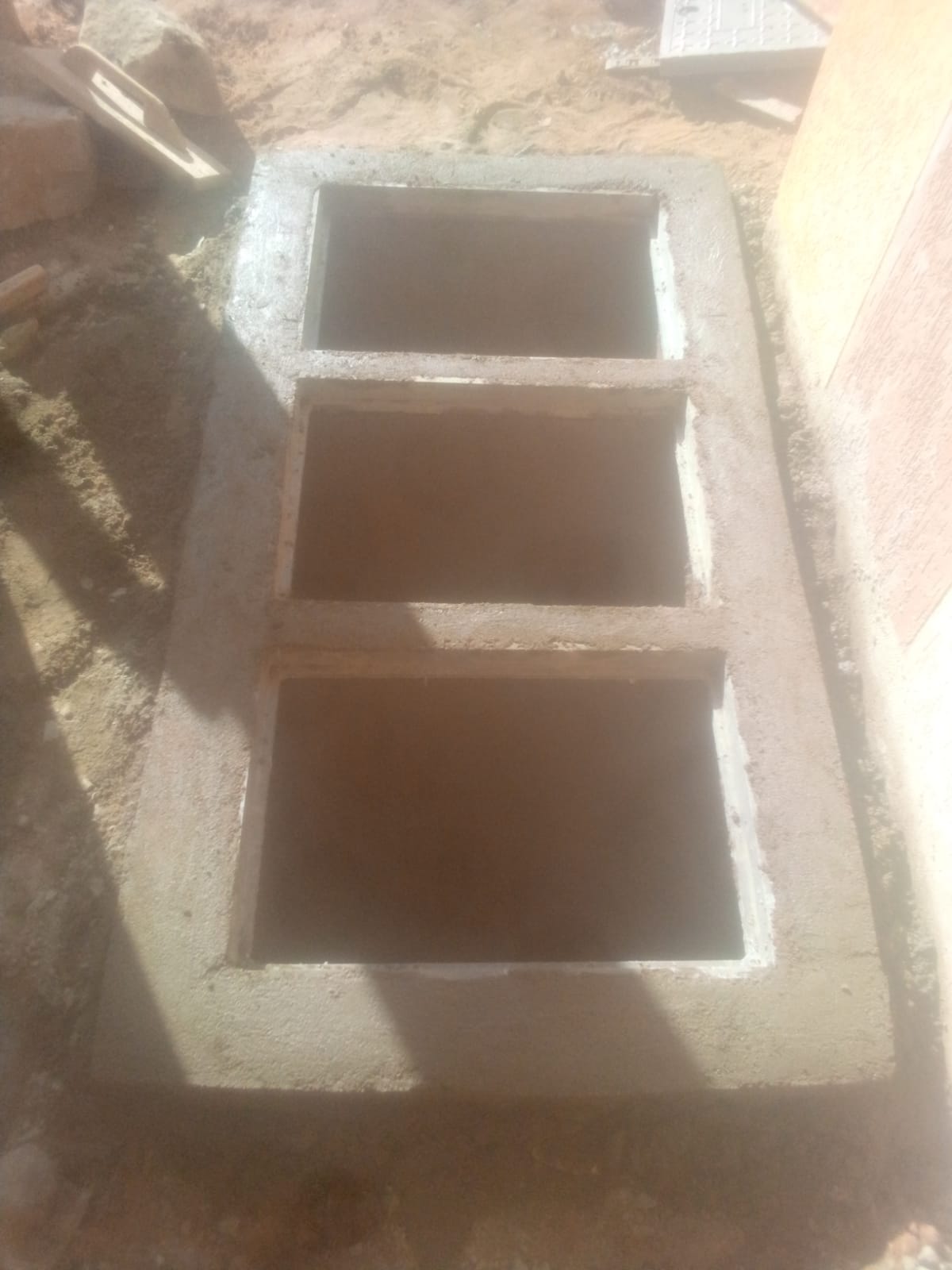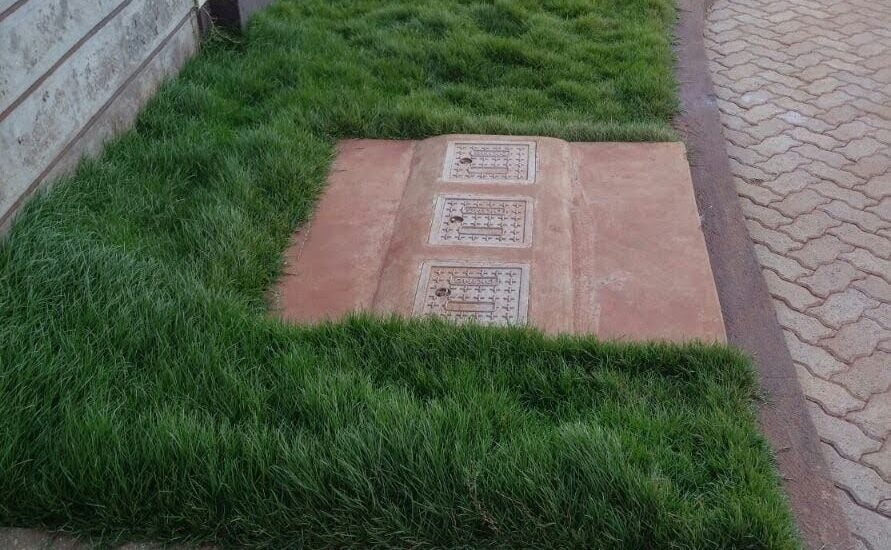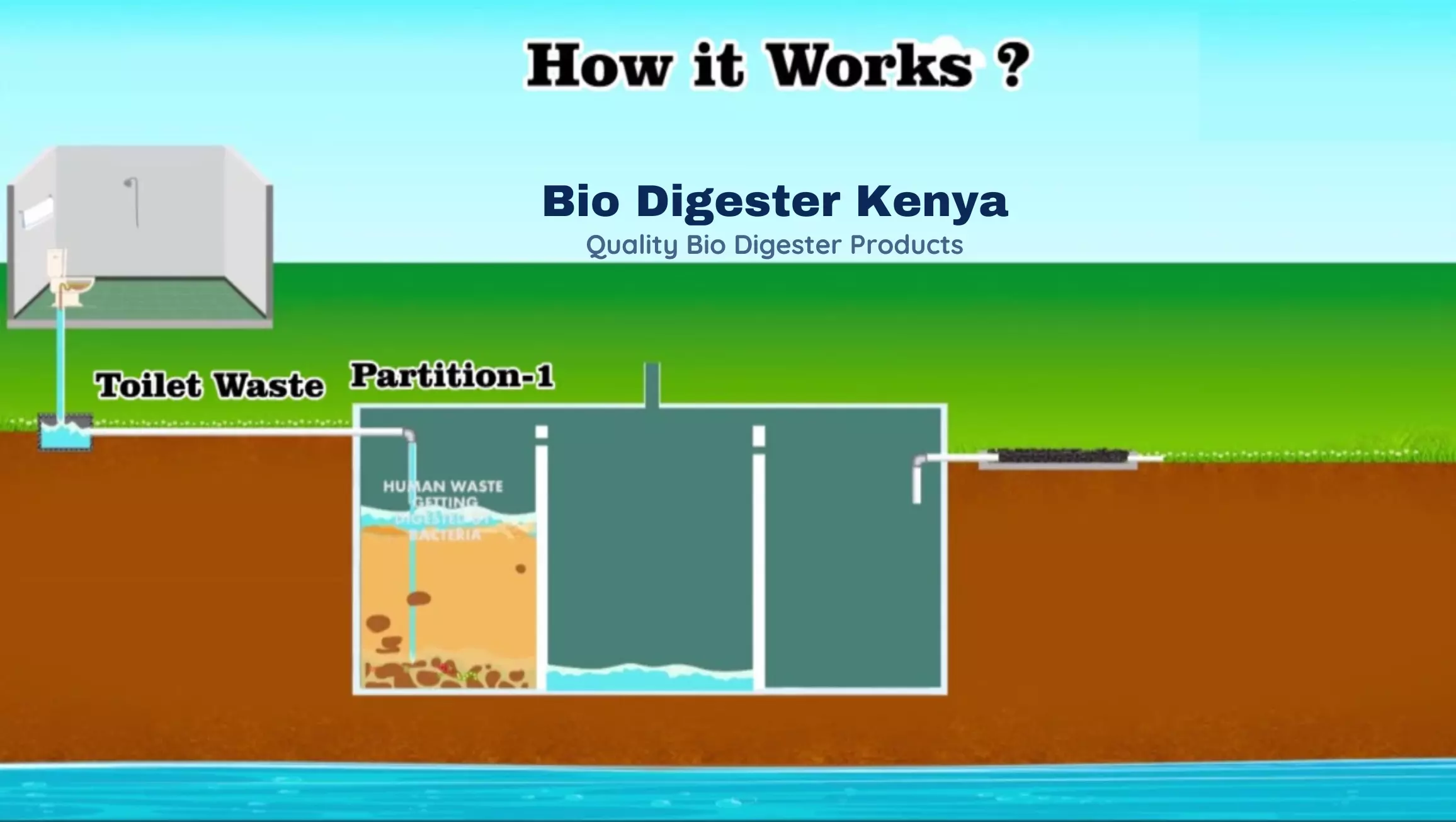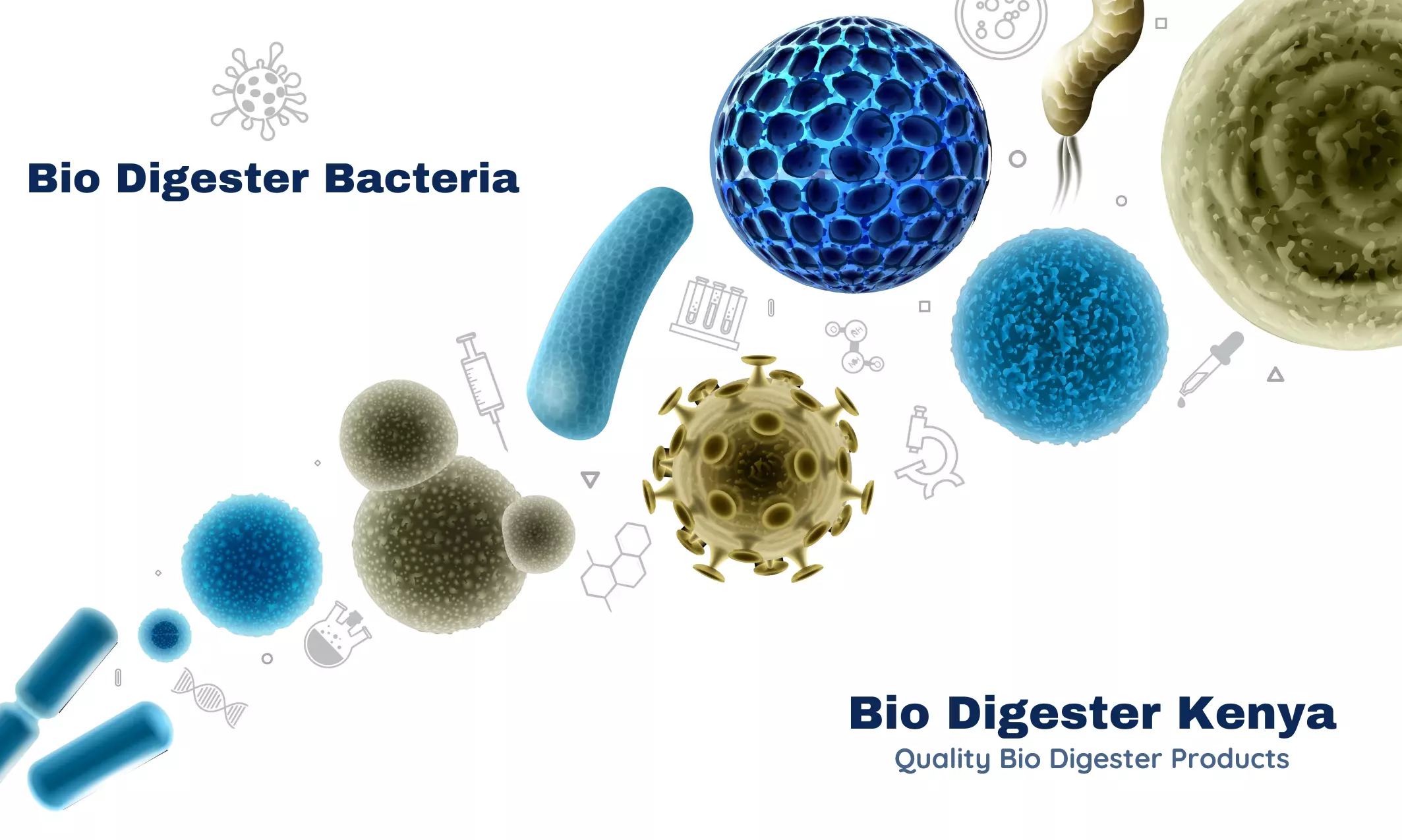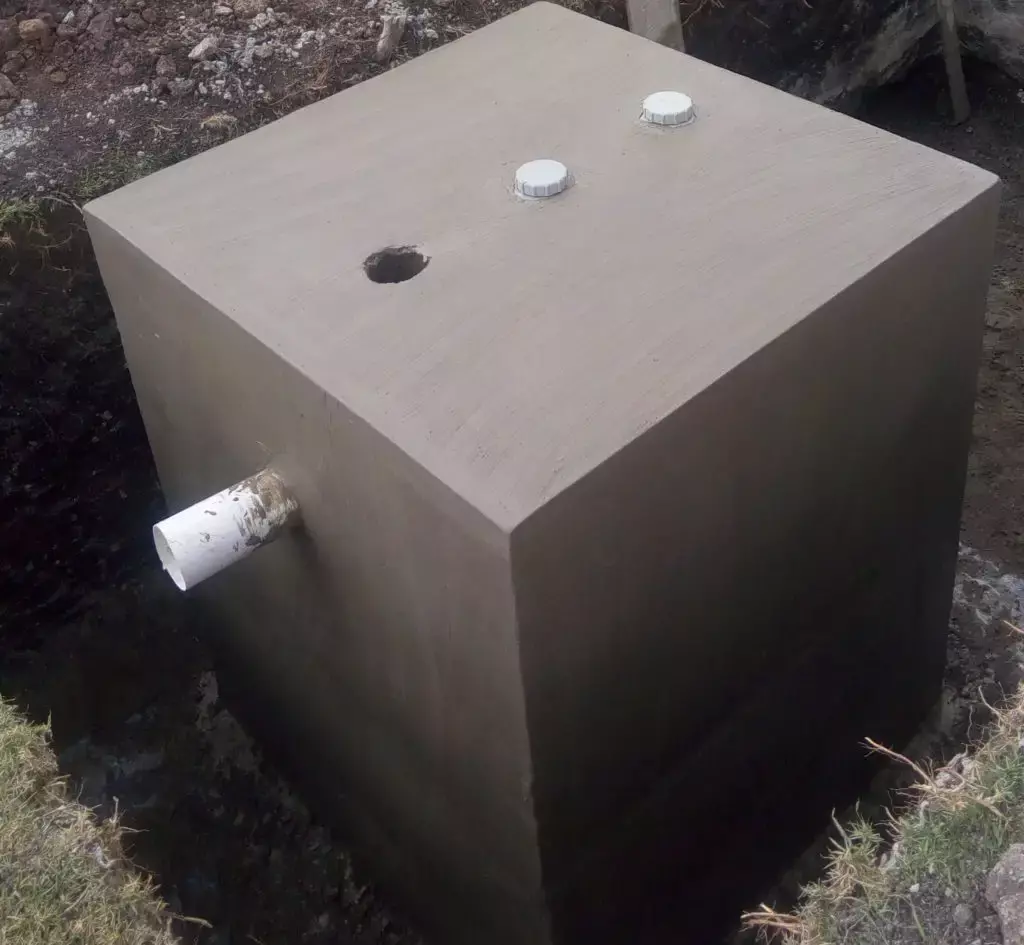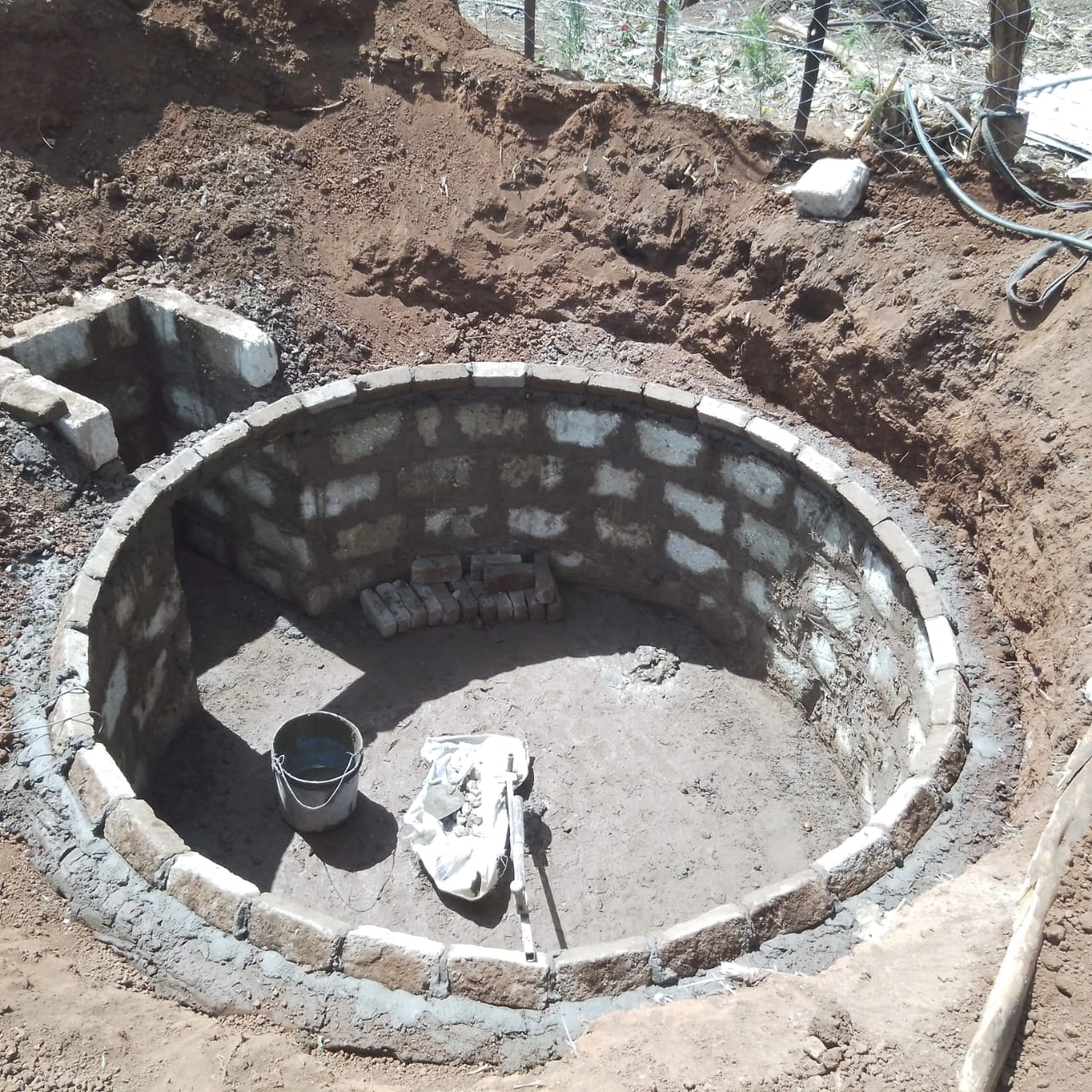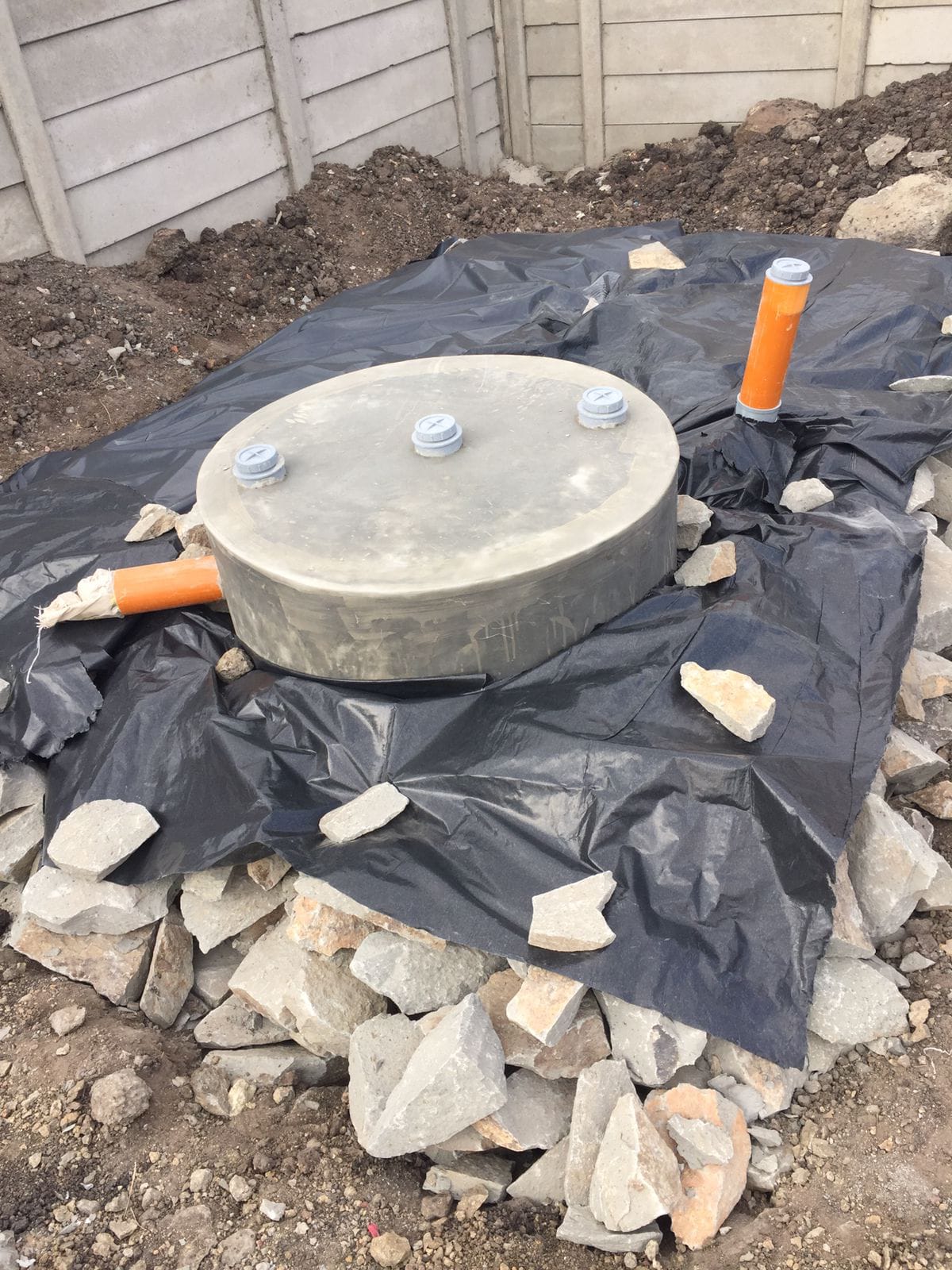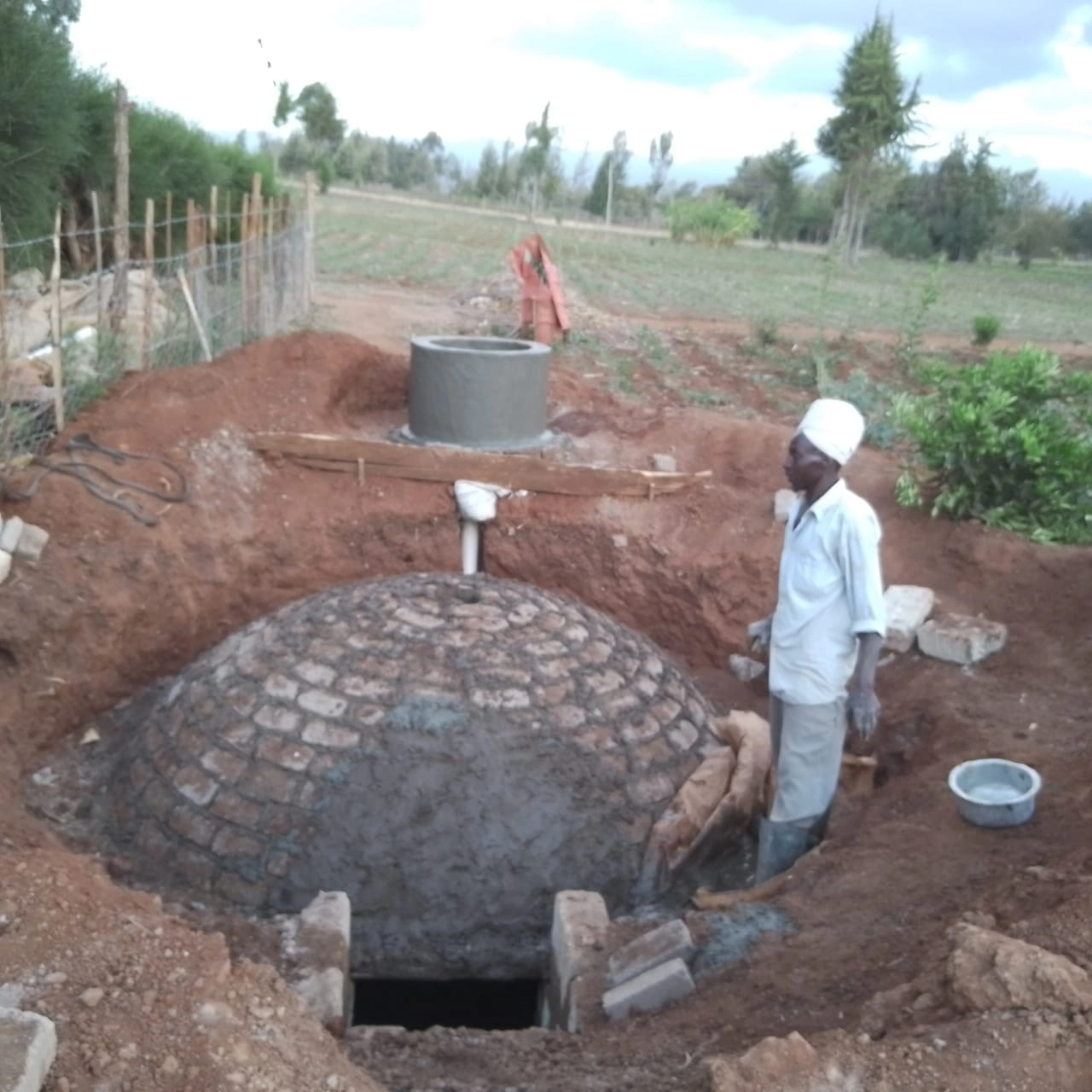Effective waste management is essential for maintaining a clean environment, especially in rapidly urbanizing regions like Kenya.
Traditional waste management methods, such as septic tanks and pit latrines, often fall short of modern demands, leading to environmental and health issues.
Enter the biodigester—a revolutionary solution that not only manages waste efficiently but also promotes sustainability.
At Bio Digester Kenya, we specialize in designing and installing state-of-the-art biodigester systems that are transforming how waste is managed in both residential and commercial spaces.

Introduction
In Kenya, where rapid urbanization and population growth are reshaping our communities, traditional waste management methods like septic tanks are becoming increasingly inadequate.
The need for more efficient, environmentally friendly solutions has never been more urgent.
Enter biodigesters—an innovative approach to waste management that not only addresses the shortcomings of traditional systems but also offers a sustainable way forward.
At Bio Digester Kenya, we specialize in designing and installing cutting-edge biodigester systems that provide clean, effective waste management for both residential and commercial spaces, helping to create healthier environments and more sustainable communities.
What is a Biodigester?
Definition and Basic Concept
A biodigester is an innovative waste management system that uses biological processes to break down organic waste, particularly human waste.
This system converts waste into harmless byproducts such as water and biogas, offering an eco-friendly alternative to traditional septic tanks.
How Biodigesters Work
Waste is piped into the biodigester, where it undergoes anaerobic digestion—a process in which bacteria and enzymes decompose the waste in the absence of oxygen.
The result is biogas, which can be used as a renewable energy source, and water, which is safely absorbed into the ground.
Key Components of a Biodigester System
A typical biodigester system includes an inlet for waste, an anaerobic digestion chamber, and an outlet for treated water.
It may also include a biogas collector for capturing the gas produced during the digestion process.
Environmental Benefits of Biodigesters
Reduction in Groundwater Contamination
One of the most significant environmental benefits of biodigesters is their ability to reduce groundwater contamination.
Unlike septic tanks, which can leak harmful substances into the soil and water, biodigesters process waste into safe, non-polluting byproducts.
Decrease in Methane Emissions
Biodigesters help decrease methane emissions by capturing and using biogas—a potent greenhouse gas—as a renewable energy source.
This contributes to the reduction of overall carbon footprints.
Promotion of Sustainable Waste Management
Biodigesters promote sustainable waste management by turning waste into useful resources, aligning with global efforts to create a circular economy where nothing goes to waste.
Economic Benefits of Biodigesters
Long-term Cost Savings
While the initial installation cost of a biodigester may be higher than that of a traditional septic tank, the long-term savings are significant.
Biodigesters require less frequent maintenance, and the production of biogas can reduce energy bills.
Reduced Maintenance Costs
Biodigesters are designed for durability and efficiency, with fewer maintenance requirements compared to septic tanks, which often need regular pumping and repairs.
Increased Property Value
Installing a biodigester can increase the value of your property, making it more attractive to environmentally conscious buyers and renters.
Health and Hygiene Benefits
Improved Sanitation
Biodigesters offer a more sanitary solution for waste management, particularly in densely populated areas.
By safely processing waste and preventing leaks, they help maintain a cleaner, healthier environment.
Reduction in Waterborne Diseases
By reducing the risk of groundwater contamination, biodigesters also help prevent waterborne diseases that are often associated with poor sanitation practices.
Better Living Conditions in Urban and Rural Areas
Whether in urban or rural settings, biodigesters improve living conditions by managing waste more effectively, reducing odors, and minimizing the risk of disease outbreaks.
Efficiency and Convenience
Continuous Waste Processing
Biodigesters operate continuously, processing waste as it enters the system. This ensures that there is no buildup or overflow, making them highly efficient.
Minimal Space Requirements
Biodigesters are compact and can be installed in areas with limited space, making them ideal for both urban and rural settings.
Low Odor Emission
Unlike traditional septic tanks, which can emit unpleasant odors, biodigesters are designed to minimize odor, contributing to a more pleasant living environment.
Comparison with Traditional Septic Tanks
Installation Costs
The initial cost of installing a biodigester may be higher than that of a septic tank, but the long-term benefits, including reduced maintenance and operational costs, make it a more cost-effective option over time.
Maintenance Requirements
Biodigesters require less frequent maintenance compared to septic tanks, which often need regular pumping and repairs.
This not only saves money but also reduces the hassle of managing waste.
Environmental Impact
Traditional septic tanks can have a significant environmental impact, particularly in terms of groundwater contamination and methane emissions.
Biodigesters, on the other hand, are designed to minimize these impacts, making them a more sustainable choice.
The Role of Biodigester Enzymes
Importance of Enzymes in Waste Breakdown
Biodigester enzymes play a crucial role in breaking down waste efficiently. These enzymes accelerate the decomposition process, ensuring that waste is fully processed and converted into safe byproducts.
How Bio Digester Kenya’s Enzymes Enhance Efficiency
At Bio Digester Kenya, we provide high-quality enzymes that are specially formulated to maximize the efficiency of our biodigesters.
These enzymes ensure that the system operates smoothly and effectively, reducing the need for maintenance.
Application and Maintenance Tips
Applying biodigester enzymes is simple.
Just add the recommended amount to the system according to the instructions provided.
Regular application helps maintain optimal performance, ensuring that your biodigester continues to function efficiently.
Applications of Biodigesters
Residential Use
Biodigesters are ideal for residential homes, providing an efficient and environmentally friendly solution for managing household waste.
They are particularly useful in areas with limited space and where traditional septic tanks may not be feasible.
Commercial and Industrial Use
In commercial and industrial settings, biodigesters offer a scalable solution for managing large volumes of waste.
They can be customized to meet the specific needs of businesses, from hotels to factories.
Use in Public Facilities and Institutions
Biodigesters are also used in public facilities, such as schools, hospitals, and government buildings.
They help these institutions manage waste efficiently while promoting sustainability.
Case Studies and Success Stories
Real-Life Examples from Kenya
Across Kenya, biodigesters are making a significant impact. From residential homes to commercial establishments, our systems are helping communities manage waste more effectively.
Testimonials from Satisfied Clients
Our clients consistently report high levels of satisfaction with our biodigester systems. They appreciate the efficiency, cost savings, and environmental benefits that our products provide.
Impact on Communities and Businesses
The introduction of biodigesters in various communities and businesses has led to improved sanitation, reduced environmental impact, and enhanced quality of life.
Why Choose Bio Digester Kenya?
Our Expertise and Experience
With years of experience in the field, Bio Digester Kenya is a leader in biodigester design and installation.
Our expertise ensures that you receive the best possible solution for your waste management needs.
Quality of Products and Services
We pride ourselves on the quality of our products and services.
From high-performance biodigesters to reliable customer support, we are committed to delivering excellence.
Customer Support and Aftercare
At Bio Digester Kenya, we don’t just install your system and walk away.
We offer ongoing customer support and aftercare to ensure that your biodigester continues to operate at peak performance.
Installation Process
Step-by-Step Guide to Installing a Biodigester
The installation process is straightforward and efficient.
We begin with a site assessment, followed by the design and installation of the biodigester system.
Our team ensures that everything is set up correctly and provides guidance on how to maintain the system.
Customization Options for Different Needs
We understand that each client’s needs are unique.
That’s why we offer customization options to ensure that your biodigester is tailored to meet your specific requirements.
Timeframe and Costs Involved
The installation timeframe depends on the size and complexity of the project, but most installations can be completed within a few days.
We provide transparent pricing and ensure that you receive the best value for your investment.
Conclusion
Biodigesters are revolutionizing waste management in Kenya, offering a sustainable, efficient, and cost-effective solution for both residential and commercial spaces.
With Bio Digester Kenya, you can trust that you are getting the best products and services available.
Our biodigesters not only improve sanitation but also contribute to a cleaner, greener environment.
If you’re ready to make the switch to a more sustainable waste management system, contact us today to learn more about how we can help.
FAQs
How long does a biodigester last?
- Biodigesters are built to last for decades with minimal maintenance, making them a long-term solution for waste management.
Is a biodigester suitable for large households?
- Yes, biodigesters can be customized to handle the waste produced by large households or even commercial establishments.
How often should enzymes be added?
- Enzymes should be added regularly, typically once a month, to ensure optimal performance of the biodigester.
What happens during power outages?
- Biodigesters do not rely on electricity, so they continue to function normally even during power outages.
How does a biodigester handle non-organic waste?
- Non-organic waste should not be introduced into the biodigester. It is designed to handle organic waste only, so non-organic materials should be disposed of separately.
